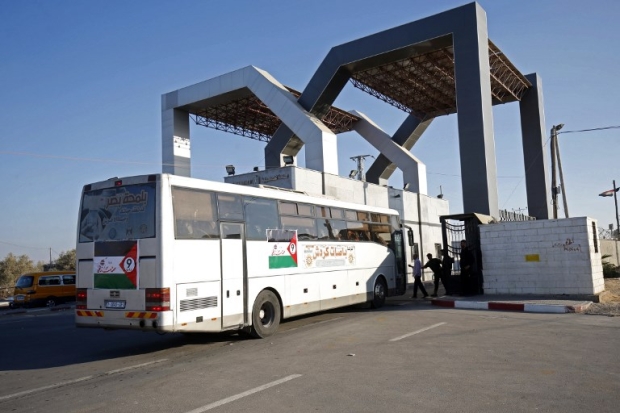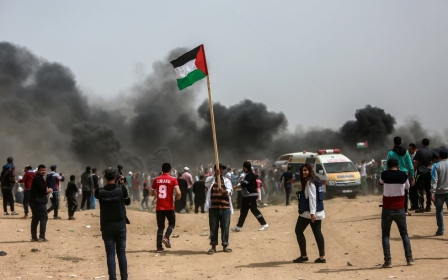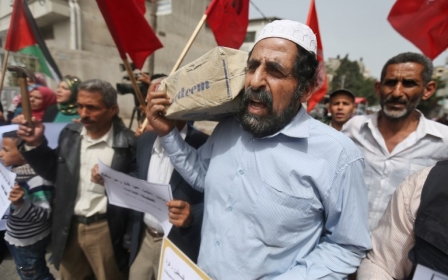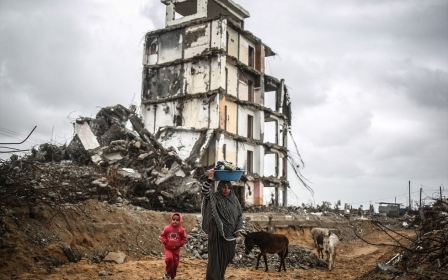The day I left Gaza and boarded a plane for the first time in my life
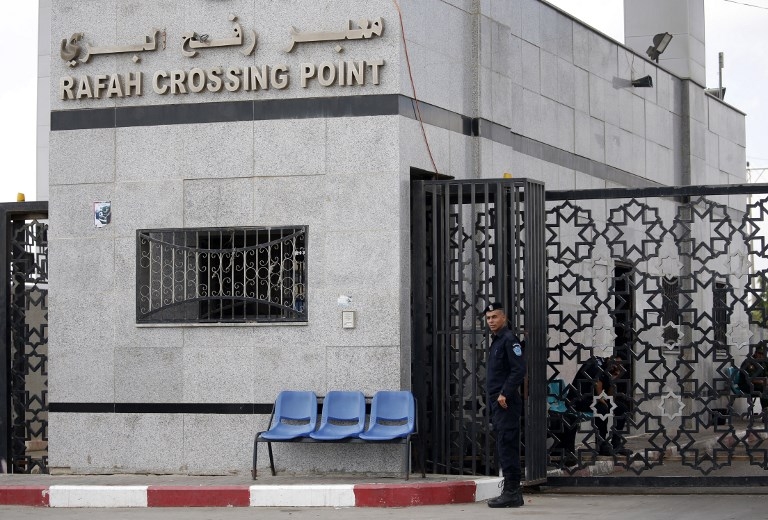
I finally flew from Gaza to Amman. Worldwide, many people can travel with few complications, but in Gaza it is a harsh ordeal requiring a chain of complex procedures and luck, which often fails.
To travel from Gaza, you need to provide Egyptian security forces with a strong justification so that they will allow you to pass. The desire to explore and see the world is not considered sufficient.
Rather, to enter normally, the traveller must be ill and require urgent treatment in Egypt; be enrolled in an Egyptian university; or be over 40; or have a visa to a third country, allowing direct passage to the airport only.
Such justifications increase the chances of successful travel but do not guarantee it, as the decision ultimately comes down to the security officer on duty. Many are forced to return to Gaza for no logical reason.
A lengthy wait
Tens of thousands of people apply to travel, waiting months before learning that they have been placed on a travel list for the next few days. If the Egyptian security officer on duty has a change of heart and decides to send the traveller back to Gaza, a new registration process and a lengthy wait follows.
I am not ill, nor a student in Egypt, nor over 40, but there are strong humanitarian reasons for me to travel to Egypt. My mother and three sisters live there, and for this reason I tried to visit them on two other occasions since 2013.
I asked: 'Isn't visiting my mother and family a justification for travel?' He replied simply: 'No'
Both times, I submitted documents proving that my mother lives in Egypt and stating that I wanted to travel to see her, but the security officer hastily wrote on my passport "returned". I was shocked by the disappointing outcome after a 20-hour wait. I asked: "Isn't visiting my mother and family a justification for travel?" He replied simply: "No."
The third time, after realising that humanitarian reasons were not enough to secure passage, I explained that I had been invited by a human rights organisation to a meeting in the Jordanian capital, Amman. I applied for a permit to enter Amman, registered in Gaza's travel lists and bought an airplane ticket, aiming to convince the security officer that I really needed to travel. I hoped he would allow me to enter Egypt normally to meet my mother and three sisters before continuing on to Amman.
Aboard the bus
But the Jordanian permit was delayed, threatening another failure. The meetings in Amman were scheduled for 26-29 November, and by the morning of the 28th I still had not received the permit from the Jordanian embassy. But God facilitated things at the last moment, and, with the aid of a humanitarian organisation, the permit reached me later that day. The meetings in Amman were extended for another two days, and I quickly confirmed my name on the travel list for 29 November.
I said goodbye to my family and headed to the Palestinian travel lounge the morning of my departure. Within two hours, I was aboard the bus that would take us to the Egyptian side. I met seven friends who were heading to the same meeting in Amman.
Long hours passed as we waited on travel procedures on the Egyptian side; evening arrived without any concrete progress. That night, the Egyptian officer started calling our names, asking each of us about our destination. I informed him of my destination and presented the Jordanian permit and plane ticket.
I also told him that I had proof my mother and sisters lived in Egypt, inquiring whether it would be possible to enter Egypt for half a day to see them before going to the airport. He refused, meaning that I would be sent to the airport directly. In light of my past failures, even this was a victory I needed to seize.
A quick meeting
We waited until the morning to go the airport. During these hours, 40 travellers were ordered to return to Gaza without a reason. Four were friends of mine who had their documents ready to head to Amman.
In the morning, the deportation officer arrived and told us to get ready to leave. I told him of my wish for a short visit with my mother and sisters before reaching the airport. He replied: "I follow orders. But you can see them for three minutes at the airport entrance." I whispered to myself: "You are generous."
The deportation mechanism requires that the officer hold our passports and give them to us only after we enter the airport. We cannot step on Egyptian soil, except for half-an-hour in a roadside rest area.
It was here that one of my mother's relatives found a way to allow my mother to see me. He called the bus driver, who was a friend of his, and learned about the cafeteria where we would stop. My mother waited for me there, and I spent half-an-hour with her in a warm and nostalgic meeting.
My sisters weren't there, but I called them and asked them to meet me at the airport entrance, where I hugged them fiercely. I could spend only a few minutes with them before leaving to board the plane, and it was hard to let go.
Joy and disappointment
With that, I boarded a plane for the first time in my life. My heart was filled with both joy at being able to travel, and with disappointment for the brevity of my encounter with my family.
In Amman, a car took me long distances between mountains and valleys. I felt the type of freedom of which we are deprived in Gaza - the ability to cross long distances without seeing a sign telling you that you have reached the border, where your freedom of movement stops.
I had to overcome the longing to be with my family for a while longer. I had finally managed to travel, with all the difficulties that entailed
When I called my family, my four-year-old son said: "I miss you dad; when will you come back?" I replied: "I miss you too, habibi."
Yet, I had to overcome the longing to be with my family for a while longer. I had finally managed to travel, with all the difficulties that entailed, and it would not be wise to return without finishing the long list of tasks I had come to accomplish.
- Ahmed Abu Artema is a Palestinian journalist and peace activist. Born in Rafah in 1984, he is a refugee from Al Ramla village. He authored the book Organized Chaos.
The views expressed in this article belong to the author and do not necessarily reflect the editorial policy of Middle East Eye.
Photo: A Palestinian security officer stands guard at the Rafah border crossing on 26 September (AFP)
Middle East Eye propose une couverture et une analyse indépendantes et incomparables du Moyen-Orient, de l’Afrique du Nord et d’autres régions du monde. Pour en savoir plus sur la reprise de ce contenu et les frais qui s’appliquent, veuillez remplir ce formulaire [en anglais]. Pour en savoir plus sur MEE, cliquez ici [en anglais].



